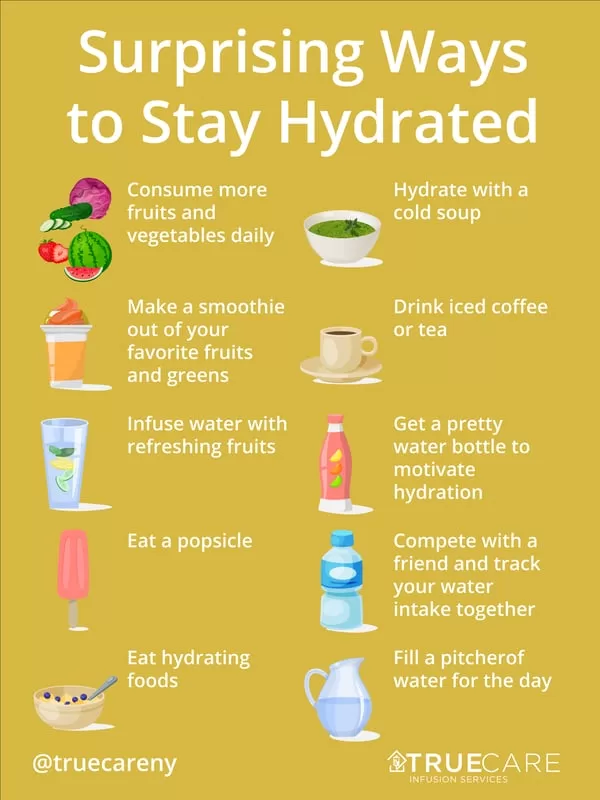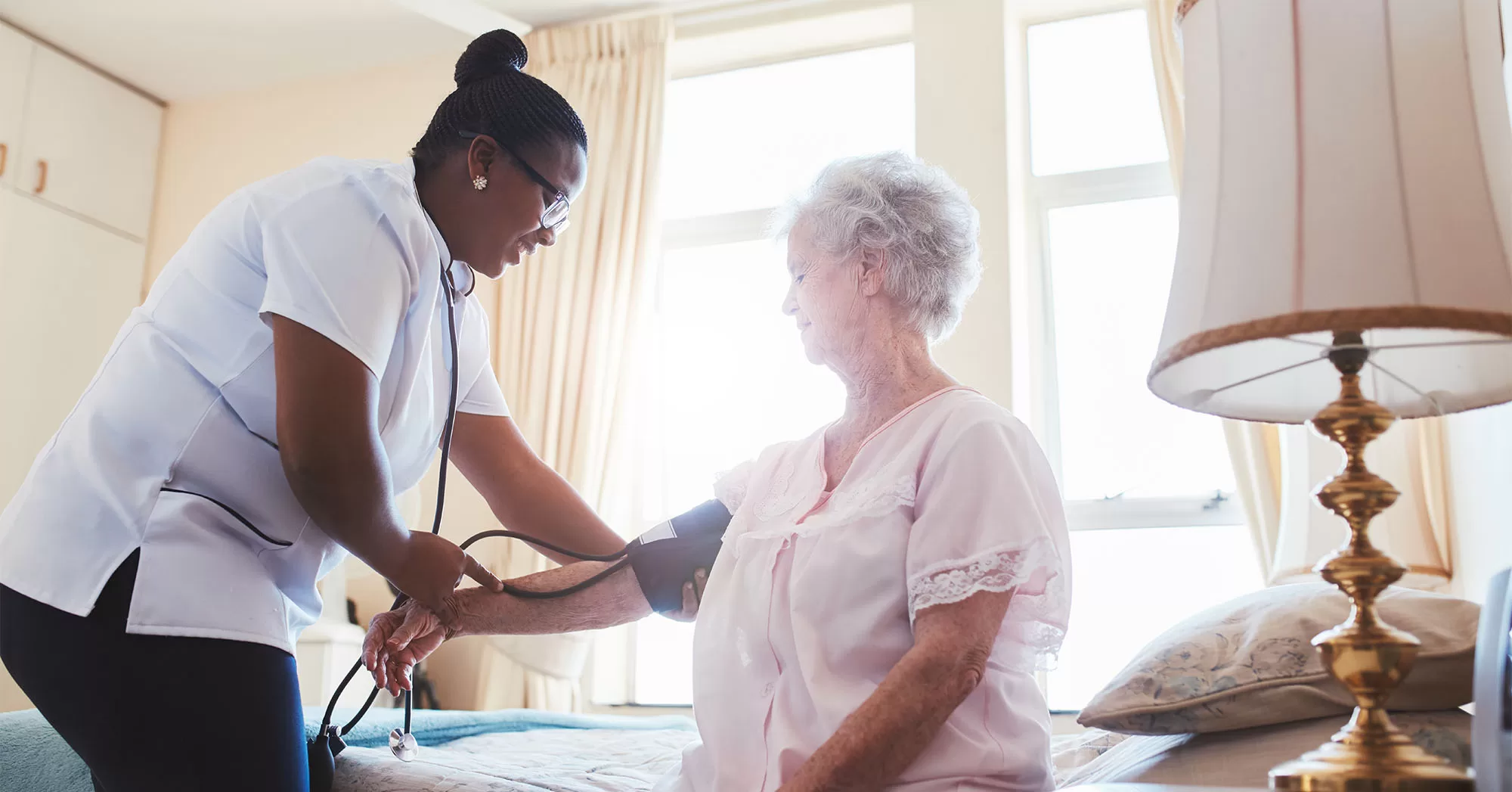Summer is finally here! But so is the danger of dehydration. Staying hydrated is vital for keeping our bodies healthy. Proper hydration regulates your body temperature, keeps your joints lubricated, your organs functioning well, helps to prevent infection, helps prevent kidney stones and constipation, and reduces your risk for a multitude of additional health complications. There’s even evidence that drinking water helps enhance older adults’ cognition, as dehydration can increase their cognitive fatigue. It also helps your sleep quality and mood; in the event you have recently experienced changes due to COVID-related anxiety.
The adequate amount of water recommended per day is 16 cups of water for men and 11 cups for women. However, studies show that one-third to one-half of older adults are dehydrated, which can be detrimental to their health. I’ve found that many older adults actively try to avoid drinking too much water because they want to reduce trips to the bathroom or fear incontinence issues. If you’ve found your loved ones (or yourself) resist drinking water, I’ve compiled various fun ways to consume more liquids in your daily life, especially if you don’t enjoy drinking water.
Please note: People with certain medical conditions may have different fluid needs (for example, those with heart failure). Consult a doctor before making changes to your diet or liquid intake.
Here are some fun new ways to stay hydrated:
– Consume more fruits and vegetables daily. They have a high amount of water, especially the juicy ones like watermelon.
– If you’re not a fan of eating fruits and vegetables on their own, blend them into a delicious smoothie. Pick your favorite fruits, add some spinach or leafy greens, and add some water or fruit juice. Blend for a nutritious drink. If you want to thicken your smoothie, add some yogurt, banana, or ice cubes to the mix. You can also blend watermelon for about 30 seconds to make cold, delicious watermelon juice.
– Infuse water with refreshing fruits such as cucumber, lemon, and mint. This combination of cold water is fresh and cooling on a hot summer day. If you want a fancier drink, use a water carbonator to add bubbles. Or, add fruit to your favorite seltzer drink.
– Eat a popsicle (you can make your own with blended fruits) for a cold, hydrating snack.
– Hydrate with foods like oatmeal, chia pudding, and jello, which absorb a good amount of liquid during preparation.
– Try some new soups. Cold soups are a great way to hydrate and cool down during the summer months.
– Even coffee or tea can still be hydrating. While they may have a mild diuretic effect, the liquid still counts.
– Get yourself a special water bottle or mug that motivates you to hydrate when you go out.
– Create a friendly competition with a friend or family member to hold yourself accountable and report back your water intake regularly.
– Fill a pitcher with the amount of liquid you want to drink each day, and then make sure you’ve finished it at the end of the day. You can purchase a fruit infusion pitcher to help motivate yourself.
Your body is about 60% water, so drinking water is vital to keep your body going. Thirst isn’t the only sign of dehydration. Feeling thirsty (or feeling hungry after you’ve already eaten) may signify that you are already dehydrated. Drink before you get thirsty, and you’ll stay on top of it.
Infusion therapy is another excellent way to make sure you and your elderly loved ones stay healthy and safe throughout the summer. Plan ahead and schedule a Full-Suite Hydration Therapy session with True Care’s Infusion Therapy services and ensure proper hydration with ease of mind.











